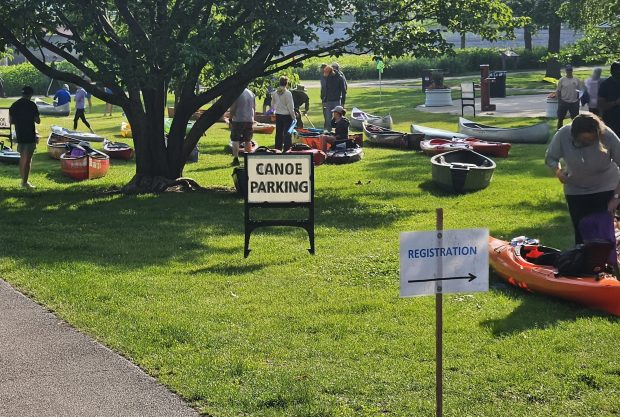After multiple delays, the federal Transportation Security Administration said the May 7, 2025, deadline for requiring a Real ID for air travel is firm, and the Illinois secretary of state’s office is launching a campaign to urge those who don’t yet have the ID to get one.
Only about 23.5% of Illinois residents have obtained the Real ID card, which is marked by a gold star in the upper right corner, according to the secretary of state’s office.
The low number is a cause for concern for the office since getting the document is more involved than applying for a regular state driver’s license renewal. Real ID applicants must go in person to a secretary of state driver services facility and provide proof of identity, proof of full Social Security number, two current residency documents and proof of signature. The full list of acceptable documents is available on the secretary of state’s website.
“For so long, people just grab their ID or their license and hop on a plane, so this is a fundamental change to the way people travel and identify themselves,” Illinois Secretary of State Alexi Giannoulias said in an interview Monday.
For anyone 18 and older without a valid passport, the Real ID will be required for boarding flights a year from now. A Real ID also will be needed to visit military bases or secure federal facilities.
Congress passed the Real ID Act in 2005 following a recommendation from the 9/11 Commission. Implementation has been slow, with deadlines being extended in recent years because of the COVID-19 pandemic.
Giannoulias said the repeated delays in enforcement, in addition to the somewhat complicated steps needed to get one, are largely to blame for people’s failure to obtain the document. But he said now is the time to act to prevent overcrowding and backlogs at driver services facilities, he added.
“Our message is very clear,” Giannoulias said. “We want people to stop procrastinating.”
In addition to a passport, alternate IDs that will still be accepted at airport security checkpoints include permanent resident cards and federally-accepted Tribal IDs, among other documents.



